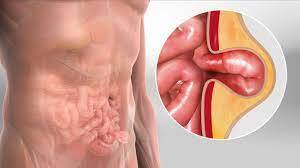An inguinal hernia is one of several medical conditions that can affect the human body. A rather unsightly and discomforting medical condition, an inguinal hernia can impact a person of any gender and age group. However, men are more affected by the disease, especially middle-aged men.
An inguinal hernia is not usually a serious medical complication. But if the disease is not treated, it may worsen and assume life-threatening proportions. If you notice any symptoms of the disease, you should have it checked immediately at any leading hospital run by Max Healthcare.
Before we mention the symptoms, it is necessary to know what is an inguinal hernia.
Defining an inguinal hernia
An inguinal hernia occurs near the groin. A hernia happens when a section of the intestine finds a weak area within the abdominal muscles and pushes itself out.
An inguinal hernia can cause immense pain, primarily when the person performs a strenuous activity. Medical ailments like a cough can also increase pain. To get rid of an inguinal hernia, it is necessary to avail treatment. Besides rectifying the problem, it will also prevent the disease from becoming life-threatening.
Symptoms of an inguinal hernia
An inguinal hernia exhibits several symptoms. Some inguinal hernia symptoms are very prominent and indicate the urgency of treatment. Symptoms of inguinal hernia that you need to know include:
- You may see a bulge along the groin area. If you are standing or upright, the bulge will become more prominent. Even ailments like coughing can cause the bulge to become visible.
- An Inguinal hernia often leads to swelling or inflammation of the areas near the testicles. If you see swelling, there is a likelihood that you may have the medical condition.
- You may feel a lot of pressure in your scrotum.
- If you are feeling weakness or heaviness in the groin, it will help if you see a doctor because these are significant symptoms of the disease.
- You might experience intense pain in the groin when performing strenuous activities and bending or coughing.
- A burning sensation at the bulge also indicates that you may have an inguinal hernia.
- Sometimes it becomes impossible to push the bulge back to its normal place. The hernia’s contents get incarcerated because they are confined within the abdominal wall. The incarcerated hernia becomes strangulated, preventing blood flow to the confined tissue, making it a life-threatening complication.
Mentioned below are some symptoms that are specific to a strangulated hernia:
- Pain gets worse over time.
- Vomiting
- High fever
- Fast heart rate
Do not delay treatment if you see any of the inguinal hernia symptoms mentioned above. Early diagnosis and treatment will prevent the disease from becoming severe. However, postponing treatment will lead to more complications that may prove fatal for the patient.
Risk factors
Numerous factors may contribute to an inguinal hernia or may make the disease worse. Some of these risk factors are:
- Constipation can cause straining. If it becomes chronic, it increases the probability of developing an inguinal hernia.
- Chronic cough. Smoking is often cited as a risk factor because it is one of the causes of cough.
- Inguinal hernia disease running in the family.
- Medical conditions like obesity
- Advancing age is a common reason for the development of the condition.
- Strenuous exercise. If you already have an inguinal hernia on one side, you should be cautious. Performing taxing activities and exercises can develop the hernia on the other side.
- You have already had inguinal hernia or undergone surgery for the disease.
Prevention
If an inguinal hernia is congenital, present since birth, there is nothing you can do to prevent it besides seeking medical treatment. However, you can reduce the risk factors by taking certain precautions.
- Most importantly, do not smoke. And smokers should give it up.
- Keep your weight in check
- Ensure that your meals are nutritious and well-balanced
- Do not perform any demanding activity like lifting heavy objects.
Where to get treated for inguinal hernia
Inguinal hernia symptoms need to be taken seriously, and treatment availed at the earliest. Capable and experienced doctors at leading hospitals should perform the treatment. Max Health is one of India’s leading hospital chains. It operates numerous hospitals like BLK-Max, Max Hospital India and Nanavati Max Hospital, to name a few.
Max Healthcare’s medical infrastructure is the best in the country, and it relies on highly-advanced technologies that have helped in numerous successful hernia treatments. In addition, utmost care is given to every patient at competitive rates. To avail the best treatment at Max Healthcare, book an appointment with the doctor today.
Conclusion
An inguinal hernia is usually not a dangerous condition. But it can become fatal because an inguinal hernia will not go away on its own. If inguinal hernia symptoms are ignored and treatment is not availed, the inguinal hernia will give rise to many complications. That is why it is necessary to get the best treatment once you notice symptoms of the disease.


